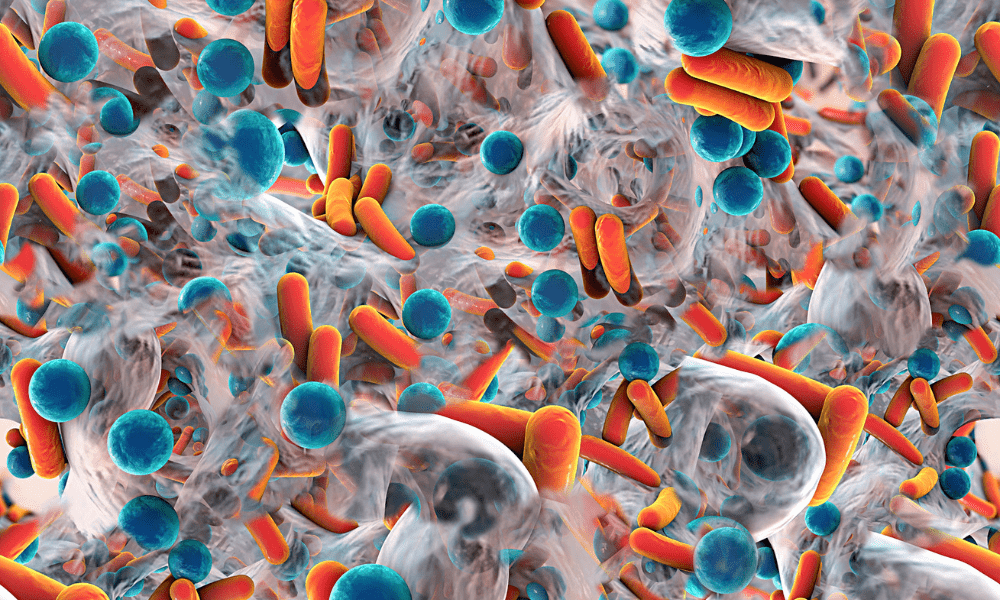Resources
Looking for a Reliable Biofilm Testing Solution?

Experience Advanced Support with a Trusted Preclinical CRO Partner.
Biofilms are complex communities of microorganisms that can adhere to surfaces, forming structures that can potentially cause infections and pose significant risks in healthcare settings. Their resistance to antimicrobial agents brings an added layer of complexity. Understanding biofilm formation and its impact during the development of pharmaceuticals and medical devices is essential for ensuring product safety, efficacy, and compliance. That’s where biofilm testing comes in.
As companies and researchers grapple with the complexities of understanding and combating biofilm formation in their products, finding a reliable testing solution becomes paramount.
Understanding Biofilm and Its Impact
What are Biofilms and Why Does Testing Matter?
Biofilms are structured microbial communities that form on surfaces; protected by an extracellular matrix. These microbial formations can develop in diverse environments, including on medical devices, during the manufacturing processes, and even within the human body, causing infections, contamination, and reduced efficacy of treatments. Biofilm-associated infections are notoriously difficult to treat due to their resistance to antimicrobial agents, causing persistent infections and complicating treatment efforts. Rigorous biofilm testing to evaluate product performance against these persistent microbial communities is vital.
Biofilm testing aims to evaluate the efficacy of antimicrobial products and determine a material’s resistance to biofilm formation. The insights gained from robust biofilm testing directly influence product design, regulatory submissions, and market readiness. However, the variability in biofilm behavior often complicates testing protocols and creates challenges in generating reliable insights.
Common Challenges in Biofilm Testing
Despite its importance, biofilm testing is fraught with challenges that can hinder progress.
Complexity of Biofilm Behavior
Biofilms form differently depending on the species, surface material, and environmental conditions, making it challenging to create consistent testing parameters. This variability can complicate the reproducibility and reliability of results, leading to a range of issues in the R&D process if not managed effectively.
Inadequate or Inaccurate Testing Models
Selection of an appropriate testing model that accurately represents real-world conditions is essential to producing reliable results and minimizing risk setbacks in product development. Many researchers have come to iFyber with a model or method in mind, only to learn that a different approach is necessary or better suited for their intended application after discussing their desired outcomes.
Lack of Customization
Off-the-shelf testing solutions are rarely adequate for addressing the unique requirements of medical devices and pharmaceuticals. The inability to tailor protocols to a specific product’s needs can result in incomplete data that fails to satisfy regulators or guide further development.
Limited Expertise and Resources
When labs lack the specialized microbiological knowledge required to handle the intricacies of biofilm testing or struggle with limited resources, the shortage can lead to delays, misinterpretations, and a failure to adapt when unexpected results arise, disrupting development timelines. Without specialized expertise and a clear testing roadmap, teams may struggle to determine the next steps in their testing journey, resulting in wasted time and resources.
To address these issues, iFyber takes a progressive testing approach – starting with simpler, cost-effective models and advancing to more complex testing methodologies. This strategy minimizes unnecessary expenditures while optimizing testing outcomes, ensuring that each test adds value and resources focus on generating meaningful data.
Comprehensive Biofilm Testing Capabilities
Beyond biofilm testing, the team’s expertise spans a range of microbial control solutions including, assay development for quality control testing, biocompatibility testing to ensure medical devices are safe and compatible with biological systems, and sterility validation to ensure safe products after manufacturing.
iFyber offers a menu of assays and biofilm testing solutions that assess biofilm prevention and eradication efficacy, utilizing both in vitro and ex vivo models that replicate real-world conditions. Additionally, iFyber excels at custom method development, designing and validating new protocols tailored to meet specific project needs. These custom biofilm test models are often used to develop technologies to combat resistant biofilm infections.
Why Partner with iFyber?
- Expertise and Specialization: With over a decade of experience in microbiology, biofilm science, and preclinical testing, iFyber’s seasoned professionals go beyond data collection to answer tough questions, provide actionable insights, and collaborate on next steps. With customized testing plans tailored to meet product and regulatory requirements, iFyber ensures that no challenge is too big to overcome.
- Capacity and Turnaround Time: iFyber extends your in-house capabilities and offers additional capacity to run experiments, enabling faster experimentation and shorter timelines. Scientific acumen combined with experience and cutting-edge facilities helps clients maintain project momentum while remaining cost-effective.
- Collaborative Support: Collaboration lies at the heart of iFyber’s services. The team’s high-touch approach keeps clients informed at every step, fostering trust and transparency. By consolidating experimental needs under one roof, clients benefit from a streamlined process and seamless support—from defining project requirements to testing and delivering data to guiding the next steps.
Ready to Elevate Your Biofilm Testing?
Biofilm testing is an indispensable component of advancing medical and pharmaceutical innovations. Partnering with a contract research organization (CRO) that understands the intricacies of biofilm behavior, testing challenges, and the regulatory landscape can make all the difference. iFyber is committed to delivering reliable, tailored biofilm testing solutions that prioritize safety while driving product success.
Explore iFyber’s Biofilm Testing Services to learn more. If you’re looking for a reliable partner to handle your biofilm testing needs, contact us today to speak with a member of the iFyber team and discover how we can support your project’s success.
